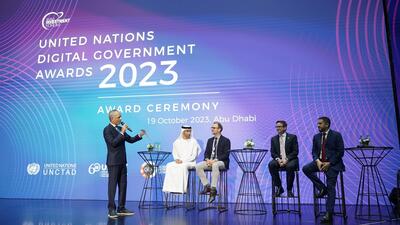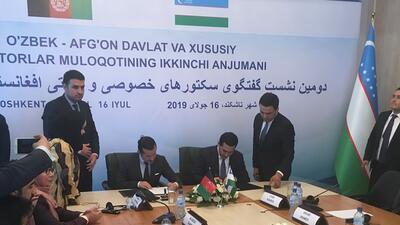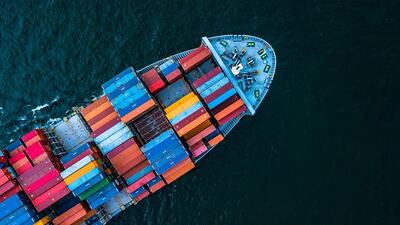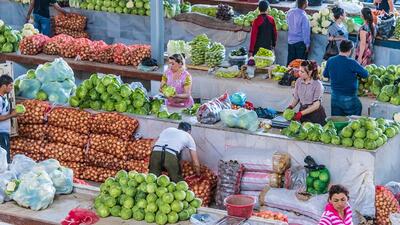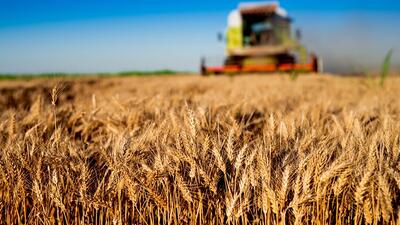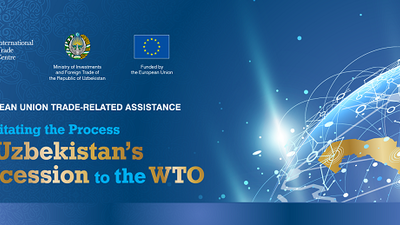
Uzbekistan’s negotiators primed on environmental services in WTO accession
Environmental services are gaining importance in the global economy with growing standards and regulations that address environmental challenges.
The scope of global environmental problems has seen the previously neglected policy area of environmental services take on greater importance in recent years, also in trade.
Moreover, the United Nations’ Sustainable Development Goals (SDGs), which strive to coordinate international efforts in development, dedicate at least five goals directly to areas involving environmental services. This has therefore given more urgency globally to environmental priorities in the policy realm.
Trade policy can be used to stimulate the spread of technologies that help mitigate environmental problems. If the expense of environmental goods and services are lowered, it could facilitate their wider accessibility and use. This would also create more jobs.
Environmental services include “infrastructure” services, such as water supply, sewage, sanitation and solid waste treatment, as well as “non-infrastructure” services, such as those related to air pollution prevention and mitigation, noise abatement and the remediation of contaminated sites. Certain services are not easily categorized. For instance, it is not entirely clear whether services, such as environmental consultancy, should be treated as environmental infrastructure or non-infrastructure services.
While providing environmental services was a relatively static, low-key sector in the past, the rapid emergence of new technologies has stimulated activity and, equally importantly, trade in this sector. Web-based environmental consulting, for instance, or the remote management of renewable energy systems and other information and communications technology (ICT)-facilitated services, has spurred the cross-border supply of environmental services, prompting the industry to mushroom in recent years.
The WTO General Agreement on Trade in Services
When environmental services are commercially traded across borders, they can be subject to the disciplines of the World Trade Organization (WTO), notably the General Agreement on Trade in Services (GATS), depending on how a country has scheduled its services commitments.
A key feature of environmental services is that many of them, such as water, sanitation, refuse disposal, recycling, and waste-water treatment are operated by public utilities and therefore resort under the State. Services supplied by governments are exempt from the GATS.
However, the increasing tendency has been to privatize or sub-contract these type of services to private-sector entities. Environmental services that are traded privately are subject to WTO disciplines for service providers in WTO member countries.
It is therefore crucial for WTO members to clarify their domestic regulatory framework and know which services are provided by the government and which by private actors, or public-private partnerships.
Workshop guidance for Uzbekistan
For countries in the process of acceding to the WTO, including Uzbekistan, a strong regulatory framework will facilitate compliance with GATS requirements. Key questions that the country would need to address in this process are:
- How will public policy objectives be achieved in a liberalized context?
- Is there a need for any new regulatory tools; or should existing regulation be calibrated?
- What are the trends on pricing, universal access and service standards?
These questions build the foundation for successful liberalization under the GATS.
To explain these technical intricacies under the GATS, the International Trade Centre (ITC) held an online workshop on 25 February 2022 for Uzbekistan’s negotiators and selected environmental specialists, organized under its European Union-funded project ‘Facilitating the process of Uzbekistan's accession to the WTO’.
The training introduced the Scope of Environmental Services under the GATS, classifications, and definitions. The participants discussed the services under the Services Sectoral Classification List (the W/120) as well as the UN’s Central Product Classification list.
Moreover, the workshop addressed the implications of private-sector participation and public private partnerships in these services. The training also explained market access and national treatment under the GATS, the four modes of supply and examples of the scheduling commitments of some of Uzbekistan’s important trading partners. These included the European Union, Kazakhstan, the Russian Federation, Tajikistan, Ukraine and Viet Nam.
Participants included representatives of the Ministry of Investments and Foreign Trade, which leads Uzbekistan’s negotiations at the WTO. The other attendants included specialists from the Ministry of Economic Development and Poverty Reduction; the State Committee for Ecology and Environment Protection of Uzbekistan; the Ministry of Housing and Communal Services and academia.
The training was the third in a series focused on services. The sessions on distribution and telecommunication services took place earlier in February 2022 and trainings in other services sector areas are planned.








